Maria Striar Talks with Clubbed Thumb's Summerworks Playwrights
A conversation with Maria Striar, producing artistic director of Clubbed Thumb and Summerworks 2014 playwrights, Jenny Schwartz, Peggy Stafford, and Ariel Stess.
Maria Striar: I am the producing artistic director of Clubbed Thumb. I am sitting here with Michael Bulger, our associate producer. Also with me are Jenny Schwartz, Peggy Stafford, and Ariel Stess, They are the three writers who will have productions in Summerworks this year. They are all enormously accomplished and lovely people, and it’s an interesting case this particular year that all of these plays have had longer than usual, more complicated, relationships that have culminated, or are going to culminate, in productions.
So, I thought I might ask, or talk with each writer about her particular path. Each of these writers is a member of two different writers’ groups that we have here at Clubbed Thumb. One is a mid-career writers’ group for people we’ve produced, and developed work with, and who are kind of the same generation, and, who, in many ways, share the same aesthetic. So that’s something that’s been going on for three or four years now, and its membership is slightly different each year. But it has a regular convening every two or three weeks to develop work together and generally take solace in each other’s company as we deal with where we are in our artistic and social lives.
And then just recently, we added an early-career group. This group is comprised of early career writers who have been nominated by members of our mid-career family, all of them being teachers and mentors and doing things out in the world that lead them to have a number of younger writers under their wing. So this is a way for them to get some of these people a seat at the table. The group also gets together every two or three weeks to develop work together, and to some extent, to take solace in each other’s company. We also have a bunch of guests of various stripes: literary agents, literary managers, various companies, people who make devised work—all different types of people coming in to give some perspective and hopefully some advice to the early-career group, and a little networking leg up to help them on the next stage in their careers.
So Jenny, how did this play end up where it is now, and how did you get there?
Jenny Schwartz: Okay. I started it last year. I brought in part of what is now the first scene to our writers’ group, and that was the beginning of it. So I was trying to figure out—I liked the first scene, but I didn’t know how to get it into a play. And we worked on it. We had a workshop, but we had to cancel it, and then I went into rehearsal for something else and I didn’t come back to it until this year. This whole play has been developed with the support of Clubbed Thumb, under Clubbed Thumb workshops— every page of the play. When we started talking about possibly doing the play in Summerworks that we had another workshop, and I brought those same pages in, and I hadn’t done any work. And I started to figure out how I could make it into a complete work.
Maria: Adam Greenfield and I run a program at Playwright’s Horizons that we co-curate, co-produce called SuperLab, which each of these writers has taken part in. It’s your standard week-long workshop with cast and director, stage manager, open to the public at the end if it is so desired by the writers, depending on the play. And for Jenny’s play Somewhere Fun, in conjunction with the workshop at New Dramatists, I got to sub in occasionally for the incredible Kate Mulgrew, which was really fun, trying to imitate her. It was so much fun to inhabit Jenny’s language. It was also really interesting to see how Jenny worked. I compare it to knitting although I don’t knit, so that’s probably a really terrible metaphor. But you expand outward from within—it’s fascinating, but it really is a very particular approach to writing that involves a lot of actors being allowed to shift throughout. So in our early experiments with this play, and this is an unusual process for us, because we said yes to doing this play when, I think, there were about twelve pages. It was kind of a big dare.
Jenny: Whatever it was with these workshops we had in the winter and the spring, the play came really fast, which was pretty exciting. Because originally, or last year when we were working on it, it was slower. I really couldn’t find the shape of the play. But when I went back to it this year with the actors it did come pretty fast, and it’s been a really fun process.
Maria: Jenny is directing it, which is marvelous—Jenny went to graduate school for directing. And that was where you discovered—
Jenny: —writing (they laugh).
Maria: You never got far away from the work that’s being done on your plays.
Jenny: Yeah. And because I create so much of it in rehearsal, I’m definitely not far away from it. I am an active participant in rehearsal, even when I’m not directing. But yeah, I am directing this, and it has been fun. It’s felt natural.
Maria: It’s been just a cool—text, cast members, characters—kind of a fun and an unusual process. There’s something a little bit comparable that’s gone on with Peggy’s and Ari’s plays, because of the various workshops and development situations. Peggy, how did your play come about?
Peggy Stafford: So, I was part of the Clubbed Thumb Writers’ Group last year, and I think I had pages due in the fall. A lot of my plays happen a little bit randomly, or the idea for them is small, random moments. And I was sending flowers to someone whose sister died, and I had to write one of those little cards, and I found it really hard to get the words for what I wanted to say, and I hung up the phone and said, “Well, I’ll write a play about this.” And so I brought in pages—and that play came really fast.
Its the first time that I’ve been able to be in a space with people who are all excited abut the work and we’re all working on it, and that’s why I loved theater and why I wanted to be a playwright— because it brings people together. Working on something in the real world right after college is a solitary thing. SuperLab for the week reminded me why I’m doing this.
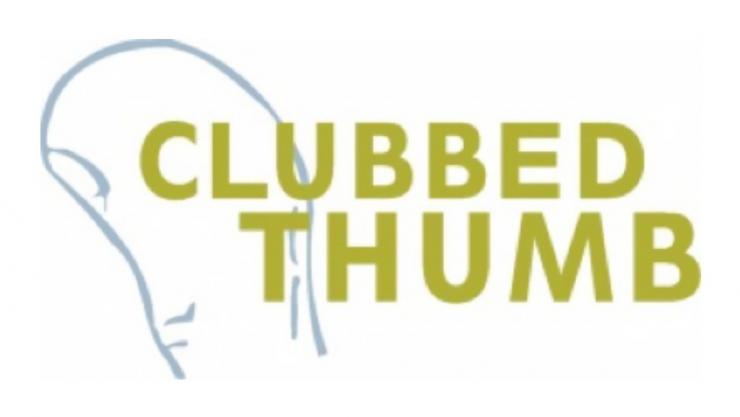
Maria: Who read the heroine in your play in the Clubbed Thumb Writers’ Group?
Peggy: Crystal? Jenny Schwartz did! She read it just right—it was so perfect, she sounded exactly like the character Crystal in my mind. That was really wonderful. And I remember after that reading, Jordan Harrison saying, “You’re a third of the way done with the play—just finish it. Don’t go back and rewrite.” So then I finished writing it, had a SuperLab, which was enormously helpful, last spring. It’s had a series of readings, which is how it’s evolved.
Maria: And there are a couple of people that have been involved with most of them— I feel like it’s a really great metronome, a group of people involved who get the style and rhythm of the play, you can count on them, right?
Peggy: It’s incredibly helpful.
Maria: And Ari, your play didn’t go through the same process, because you sent me the play—I think our emails must have crossed paths—just as I was asking you if you were interested in joining the early career group.
Ariel Stess: I had written the full play, and was sending it to people, to institutions whose work I really like. So I sent it to you, and somehow you found it in there.
Maria: Well, it’s interesting, because you sort of became enmeshed in the artistic community of Clubbed Thumb. I read a lot of plays, and so it was very exciting when you were suggested and became a part of the group. It’s just interesting that you also took part in SuperLab.
Ariel: I had written the play, most of the play, but I knew there were some characters I wanted to flesh out more, and I had had little tiny workshops that I had put on, but never had the actors in a room long enough for me to get to know the actors and then go home and write more and bring in new text. So when we did this SuperLab, which was just really magical, because it was the first time I had been in a room with all these incredibly talented actors who are also getting paid, we were all getting paid. Your friends want to work on your stuff, but you can’t pay them yet. Everyone is happy to be together and talented. It was a magical week. And when I got to see how the actors were working with the play, it inspired me to write more. I started to visualize some of the people in those roles, which helped me to expand the roles. That was pretty awesome.
Maria: And Jenny, what do you think this process was for you?
Jenny: Well, I wanted to write—I was thinking about how people can be the same age, but can be at completely different places in their lives. So I wanted to just put two people together like that, and look at all of those assumptions that we make about people before we know anything about them. I wanted these people to have made wrong assumptions and just assumed that the other person was a different age. That was sort of my assignment to myself. And then have it be an ordeal when they found out they are actually the same age. So the play is about two people who work and kind of find that they’re the same age and develop a friendship. And then I also wanted to—because it seemed like a very private, sort of intimate relationship—have a public relationship, or public figure sort of juxtaposed in this. There are scenes in the play that take place with this governor who is involved in a scandal. I was interested in how people meet—how we all are watching these stories unfold. So I wanted the people at work, the work friends, to also witness this story unfold with this governor going through this scandal. Maria just kept encouraging me to move them ahead in time more, so now I’m doing that.
Maria: So Peggy and Ari also had these two different types of workshops. We thought, well maybe we could just give people a little bit of time before we’re in a rehearsal situation, not just all of this development stuff for the play and its text, but to figure out where in space does this play want to live? How are we going to creatively solve some of these exciting challenges that this play has handed us? And to try to come up with a design world and a staging world together, instead of you know, “here’s a design, make it work!” We slowly but surely learn from our mistakes. How did you find those workshops? Did they inform the play? Did they make you change the play? Was it interesting to start to see the play—your SuperLab, Ari, you did a lot of physical stuff, actually.
Ariel: Kip [Fagan, director] envisioned that the best place for it to be would be a huge warehouse, so we just tried to use space as much as possible, because there is a lot of wandering around that happens between locations, but we were in a small space there too. Although it helped a lot with seeing the work, just like seeing where even just in a tiny space how each location is connected to the next. That helped me to visualize.
Maria: Did it make you change the order of things? Did it inform your writing at all?
Ariel: I think I was really focused on the actors’ delivery—I was really focused on getting rid of things that sounded dishonest. I think it helped Kip in terms of visualizing—he talks about the play as having different vantage points, and I think he may have figured some of that out during the SuperLab.
Maria: What about you Peggy?
Peggy: In the design workshops both Portia [Krieger, director] and I discovered a ton about how to make the play work. The play is set at first in a flower shop and then that transforms into a plant shop and then to a hair restoration clinic. The way that I wrote the play, it feels very organic. But we had to sort of figure out how that would actually happen on stage.
Michael Bulger: Is there an opportunity to zoom out a little bit and speak less specifically about these projects and more broadly about your careers in general?
Maria: How are you guys operating in the playwrighting world of America, maybe? You are overlapping in that all three of you have been supported in various ways by New Georges, which is another new works company in New York focusing in particular on exciting, cool new work done by women, and you guys have fellowships there right now, and Jenny has been produced, but you’re all sort of out there in various ways. What are some resources you wish were available to playwrights? Or maybe resources that are available to you in particular?
Jenny: This opportunity that I have right now with Clubbed Thumb and my play is my dream opportunity. When I was in graduate school for directing, I would write my plays in the room with the actors and then I would put it up in front of an audience. So it was one continuous thing. And then when I got into the real world, that was still my process, but it’s just not possible to do that. So it was hard for me to figure out how to write by myself and then try and get a workshop together, and work with actors who then weren’t ultimately in the play. It just took me a long time to figure out how to write plays in the real world. I always dreamed of having the opportunity to create a play with the same actors from development to production. This opportunity is my dream come true theater, to be writing for these actors, and we’re going towards a production. And Maria had this enormous leap of faith to say yes to these twelve pages, to say in February, “I’ll start producing this play right now for a production in June.” This opportunity is exactly what I need and what I want. It’s great.
Ariel: That reminds me of the SuperLab experience with Clubbed Thumb where for the first time since college we were getting paid to be supported. It’s the first time that I’ve been able to be in a space with people who are all excited abut the work and we’re all working on it, and that’s why I loved theater and why I wanted to be a playwright— because it brings people together. Working on something in the real world right after college is a solitary thing. SuperLab for the week reminded me why I’m doing this. And to be working toward a production instead of developing it and then putting it back in a drawer. It’s amazing.
Peggy: I would riff on that to say I helped start and ran a theater in Seattle a few years ago called Annex Theater. So much of that time was about putting shows up. We put up new plays every month, and many of them were terrible. Being involved not just in the writing, but in all the other aspects of putting a show together, and that sense of community… in a way even the writers’ group has served as a community, has touched on a place to bring in pages but also have relationships with other people’s plays, people whose work I admire and love a lot. There’s a great sense of hospitality and fellowship.
***
For information and tickets about the 2014 Summerworks festival go here.

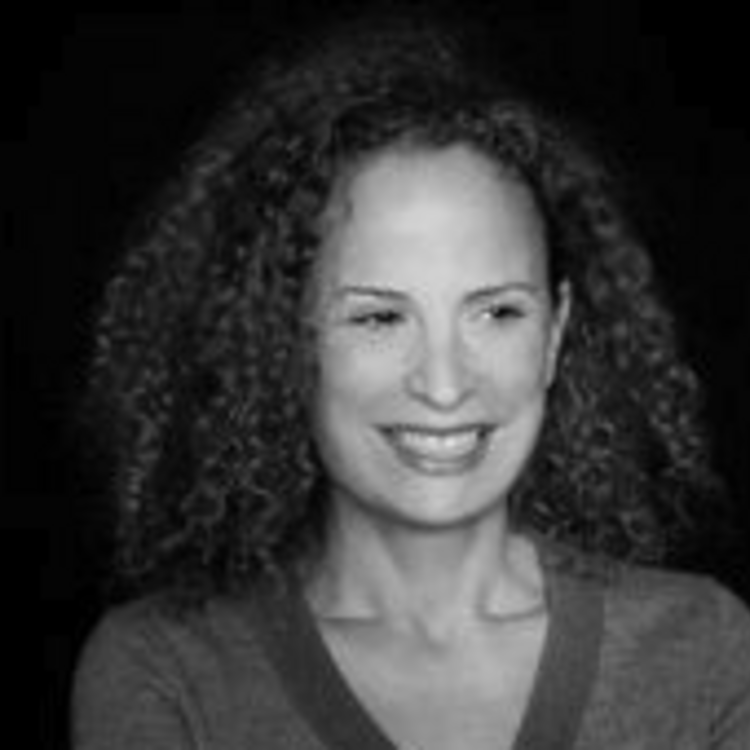
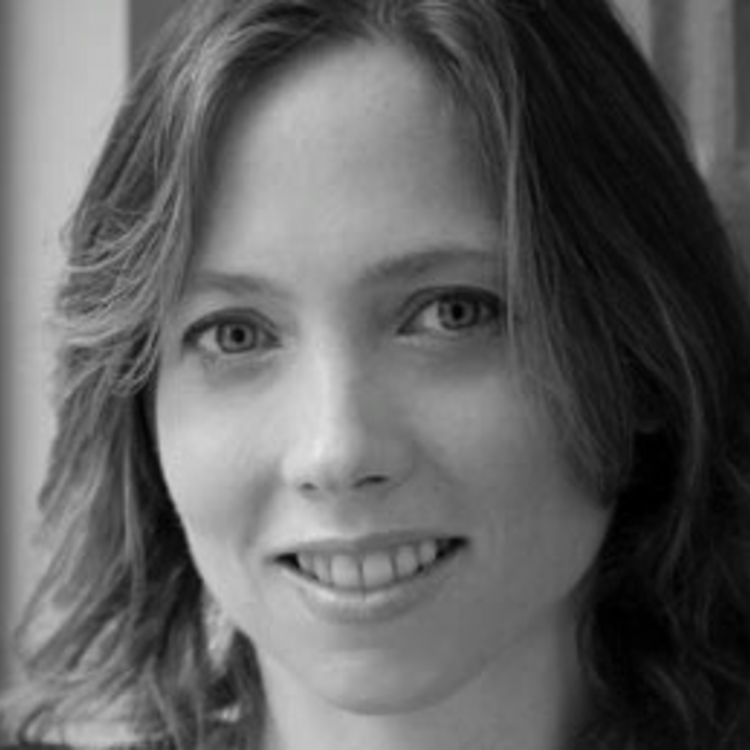
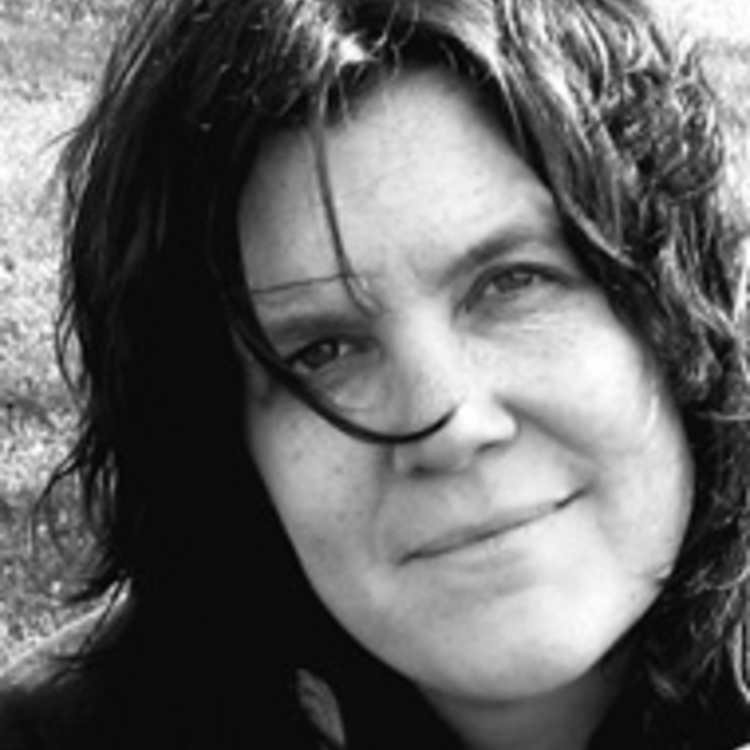
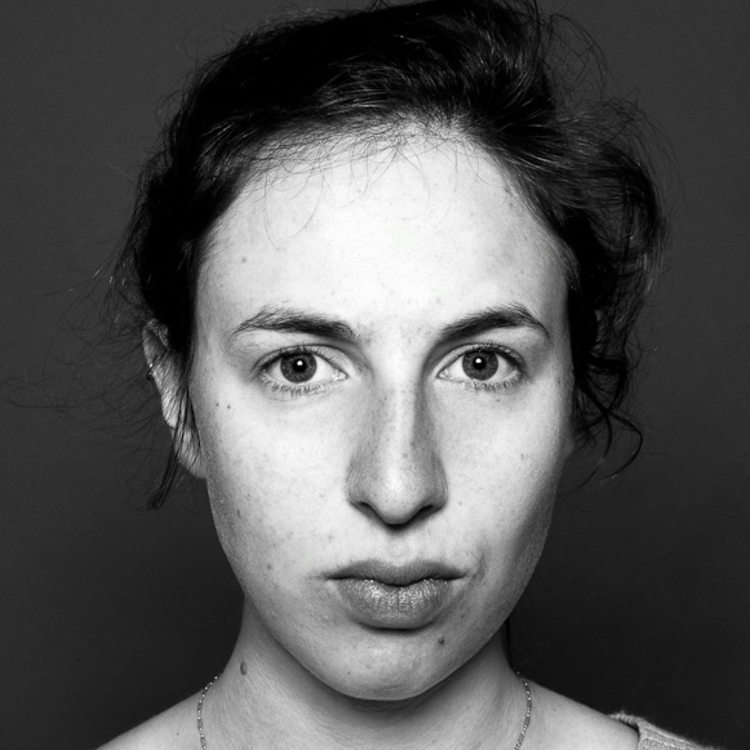
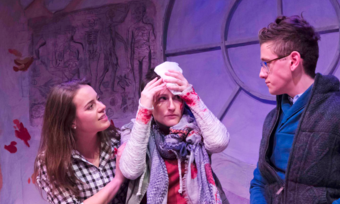


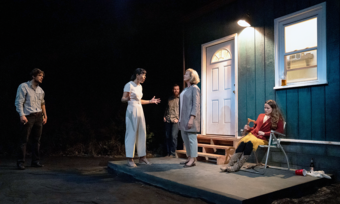


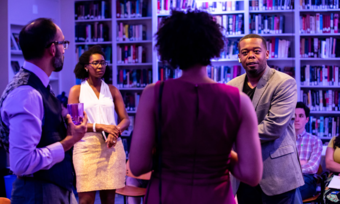


Comments
The article is just the start of the conversation—we want to know what you think about this subject, too! HowlRound is a space for knowledge-sharing, and we welcome spirited, thoughtful, and on-topic dialogue. Find our full comments policy here